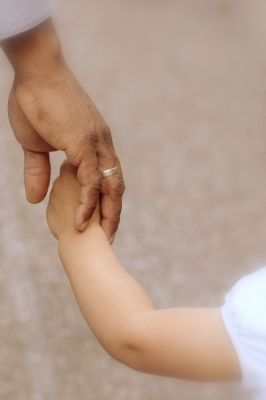Children's charities welcome tougher laws on emotional abuse

The Government's plans to introduce a so-called 'Cinderella law' against emotional abuse of children has been welcomed by children's charities.
The proposed law would criminalise actions by parents that deliberately inhibit a child's emotional, social, intellectual or behavioural development.
This could include forcing a child to witness domestic violence, punishments that involve humiliation or degradation, and aggressively scapegoating them.
Praising the Government's plans, Iryna Pona, policy adviser at The Children's Society said: "The law should protect children from harm and the available evidence is very clear: emotional neglect can seriously harm a child's health and well-being.
"It is linked to depression, self-harm and suicide. Children who suffer neglect are also more likely to have poor long-term outcomes, like underachieving at school or getting involved in risky behaviours."
Conservative MP for Swindon South Robert Buckland, said on Radio 5 Live that there many kinds of negligence the law was looking to stop.
"You can look at a range of behaviours, from ignoring a child's presence, failing to stimulate a child, right through to acts of in fact terrorising a child where the child is frightened to disclose what is happening to them," he said.
"Isolating them, belittling them, rejecting them, corrupting them, as well, into criminal or anti-social behaviour."
Child neglect was first made a criminal offence by the Poor Law Amendment Act of 1868.
The current law on child abuse is based around the 1933 Children and Young Persons Act which punishes parents or guardians who act towards their children "in a manner likely to cause him unnecessary suffering or injury to health (including injury to or loss of sight, or hearing, or limb, or organ of the body, and any mental derangement)".
However none of these provisions are in line with the definitions of cruelty to children used by social workers.
Although the charge of emotional neglect does exist in civil law, it is not a criminal offence, meaning it is often difficult for the police to gather evidence when physical harm is not involved. This is what the so called 'Cinderella law' aims to change.
"The current law is outdated, and this change will mean the harm caused by emotional neglect is finally treated as seriously as harm caused by physical abuse," said Ms Pona.
"We hope the change will help older children in particular, who professionals often wrongly assume are more resilient and more able to cope with neglect."
Action for Children, the charity that has been the principle campaigner for this change in the law said: "It's been nearly 81 years since the law on child cruelty was last changed. Back then there was limited appreciation of emotional abuse and neglect and even less recognition of its impact upon children's lives.
"Today we rightly recoil in horror when we hear about emotional abuse, and we also know that it can have a devastating impact, ruining children's lives."
To highlight the importance of laws prohibiting this kind of action, Action for Children shared the story of Collette, a mixed race child who was constantly told she was a "mistake" by her white mother and stepfather.
"When my mother met my stepfather and had children with him, I was in the way. My stepfather was racist and she had no excuse for having a mixed-raced child.
"The result was me being treated like Cinderella but without the ball and happy ending. I would watch how my parents would be so different with my younger siblings and burn with anger and jealousy."
Eventually Collette was placed under the mental health act and diagnosed with post-traumatic stress syndrome, severe depression, and bipolar disorder.
Approximately 1.5 million UK children are believed to suffer from some form of neglect.
In an online survey of 258 abuse victims conducted by the domestic abuse support group the Sara Charlton Charitable Foundation, and the anti-stalking service Paladin, 88% said they did not feel that the current law sufficiently accounted for psychological harm.
Action for Children's campaign blogger Matt Downie offered this message of gratitude in response to the government's consideration of their proposals: "Thank you to everyone who has emailed, written, tweeted, lobbied, given speeches, and my personal favourite – grabbed your MP in Waitrose – in support of the campaign.
"Much is still to be done and we have not seen the details yet. When we do we must of course make sure that the new law does not criminalise vulnerable parents, but today I think we should celebrate a huge legal and cultural step forward."
Offering reassurance that the law will not target parents using reasonable discipline Mr Buckland said: "This proposal is not about widening the net, it's about making the net stronger so that we catch those parents and carers who are quite clearly inflicting significant harm on their children, whereas they should be nurturing them and loving them."
Ministers are hoping to put the new law forward in the next Queen's Speech, but it is not yet certain it can be arranged in time.
However an entirely new piece of legislation may not be required, as it may only be a matter of amending existing laws.











